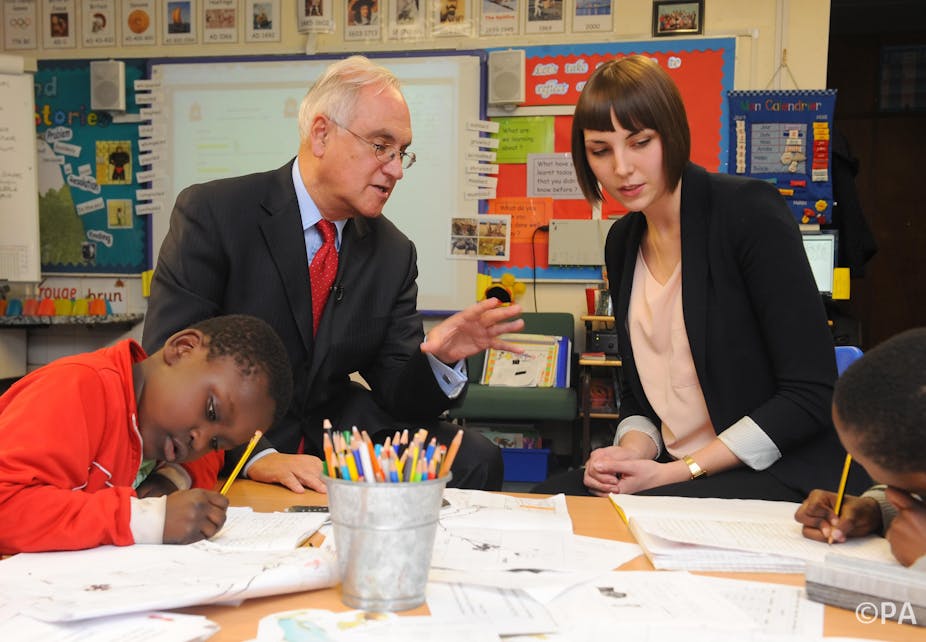The English schools inspectorate Ofsted has announced it will be terminating contracts with its three private inspection services providers from September 2015 and will be employing school inspectors in-house.
This ends what many of us have seen as a most curious practice. When the history of the privatisation of English public services comes to be written, the contracting out of quality control to private providers, albeit loosely regulated, will be seen as particularly problematic, even perverse.
When Ofsted was created in 1992 it faced a political imperative: all schools in England had to be inspected in a four-year period. Yet the number of inspectors, known as Her Majesty’s Inspectors of Schools or HMIs, then in post following reorganisation, was less than 200.
The result was a flurry of activity involving the hurried, inadequate training of large numbers of would-be inspectors employed by a number of different agencies. Inspection handbooks were compiled which tried to codify inspection practice in a form which relied less on professional judgement and more on compliance with explicit, so-called “objective” criteria.
But an inadequate number of inspectors could never assure quality closely enough across the whole process. The political imperative was met – but at a cost to the reputation of Ofsted and to the authority of inspection as an art requiring a high degree of educational judgement.
That system could have been replaced in the late 1990s given political will, but was allowed to continue. The very large number of agencies involved in the contracting out of inspections has gradually reduced – to three by September 2009 (CfBT, Serco and Tribal) and as we’ve now learnt, to zero by September 2015.
Inconsistent inspection ‘lottery’
Since 1992 Ofsted has engaged in a series of national inspection cycles permeated by constantly changing frameworks and guidance documents intended to assure consistency of quality across the privatised inspection teams. In the absence of detailed evidence from Ofsted itself, but backed up by a wealth of anecdotal evidence, that consistency of judgement has not been achieved.
Ofsted has been widely criticised for overseeing an inspection “lottery” with privatised teams varying unacceptably in judgement and insight.
It is often acknowledged that uniformity of judgement over a myriad of school contexts is unattainable, except in an ideal world. But there is a common perception of a lack of reasonable consistency, resulting in injustices to the policies and practices of individual schools when inspection reports are published.
This is not to deny the expertise of many, though not all, Ofsted inspectors and the very real, if only partially successful efforts of inspection agencies to assure the quality performance of their teams.
The new arrangements are part of what I have previously described as a cultural shift in Ofsted. The schools inspectorate is planning to alter the frequency and pattern of its inspections and to devise more flexible inspection frameworks. It wants to take on more inspectors and to directly employ additional inspectors, including an increased number of school and college leaders on brief attachments or longer secondments.
Push back against privatisation
Rather ingenuously – or diplomatically? – Ofsted claims that the end of contracting out does not reflect discontent with the work of the private inspectors. But it is on firmer ground in arguing that bringing the contracts of additional inspectors in-house: “will give us greater flexibility in the deployment, training and quality assurance of inspection activities”. How productive that flexibility proves remains to be seen.
School inspection in England needs radical reform if its perceived restricting (some would say “toxic”) influence on school policy and practice is to be replaced by a widely respected system which prioritises judgement rather than just compliance among both schools and inspection teams. The new contractual arrangements promise to be an important, though limited, step forward in realising that cultural shift. They also represent a significant counter to the creeping privatisation of the state sector – the first of many some of us hope.

